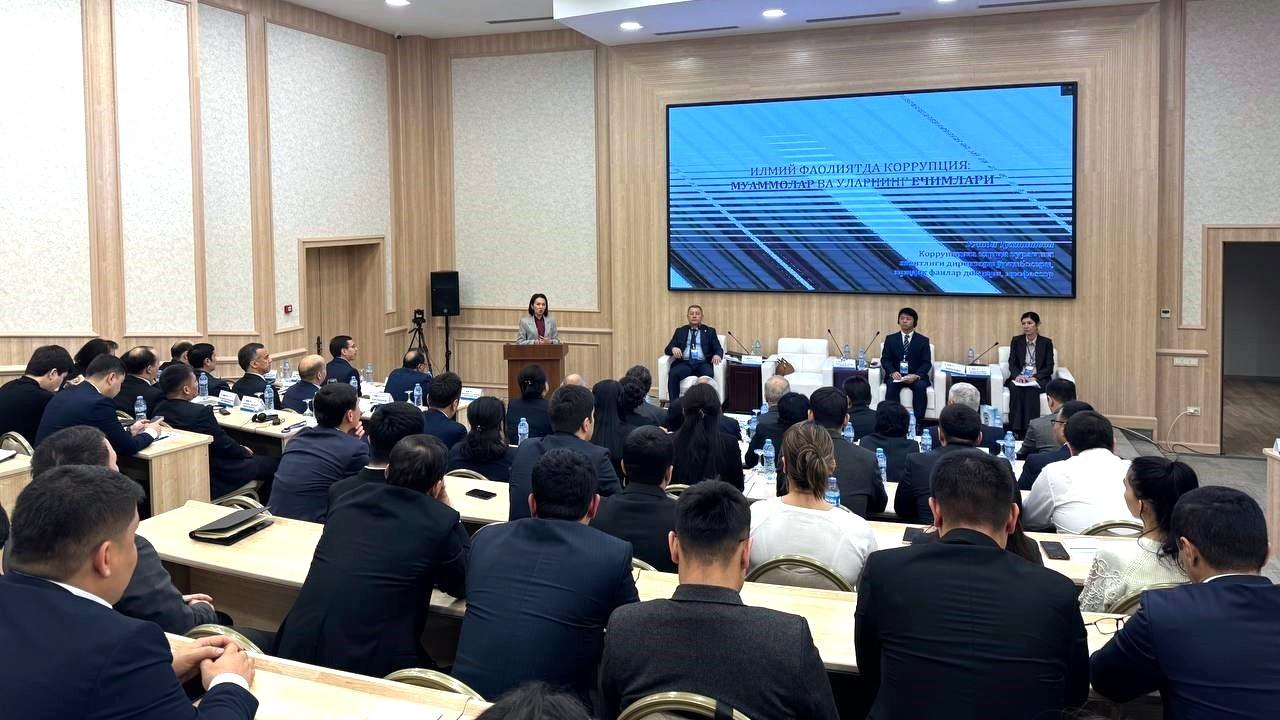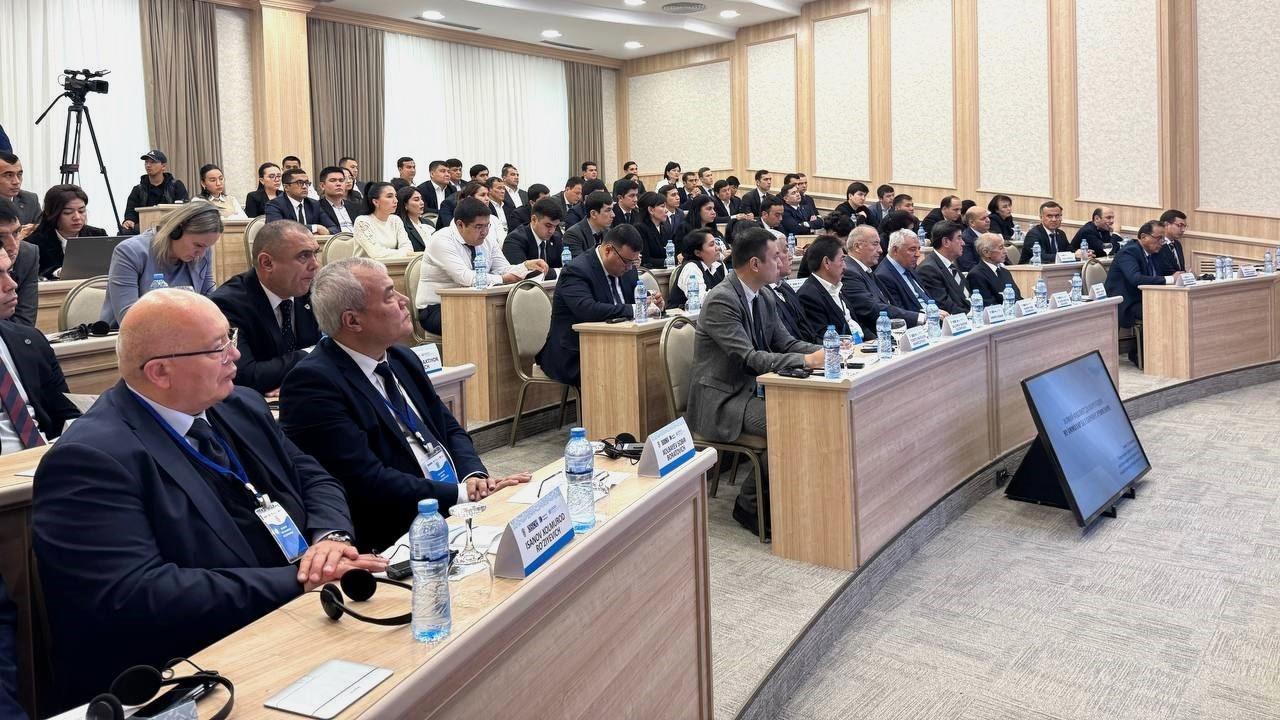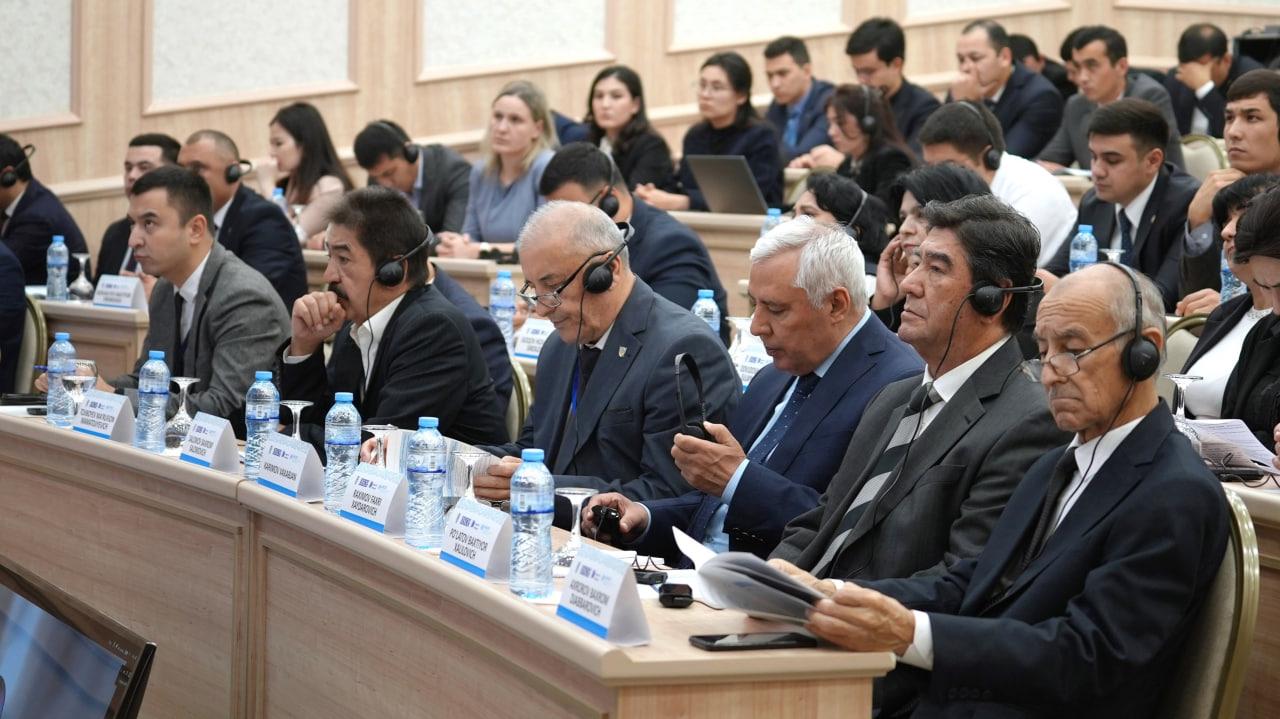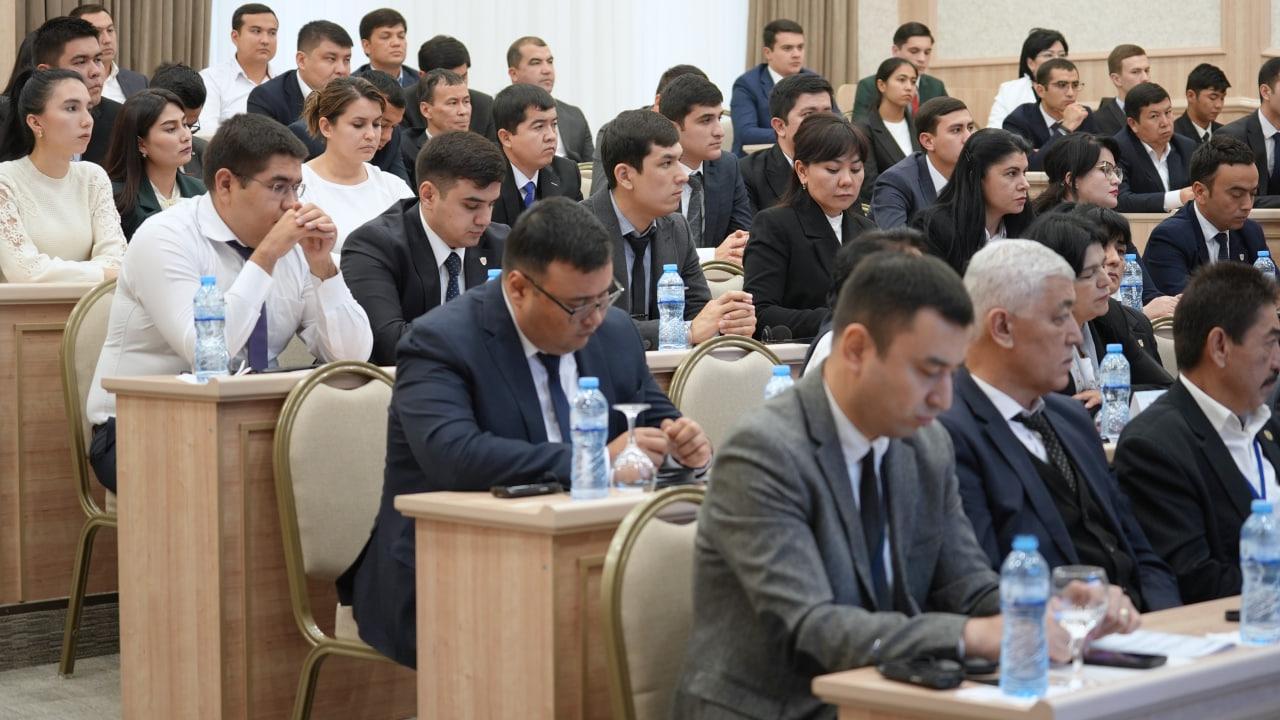Outcomes of the Parallel Session “Current Issues of Science and Education in Law Enforcement” at the International Conference
As part of the international conference marking the second anniversary of the founding of the Law Enforcement Academy of the Republic of Uzbekistan, titled “Global Challenges and Threats in Law Enforcement: Modern Strategies and Solutions”, a parallel session was held on “Current Issues of Science and Education in Law Enforcement”.
This session served as an expert platform for exchanging views on the effective integration of scientific and educational advancements into law enforcement activities to enhance their effectiveness.
The primary goal of the parallel session was to discuss and develop proposals for improving personnel training in light of modern challenges and threats, integrating science and education into law enforcement activities, developing mechanisms for implementing scientific research results in law enforcement, incorporating advanced international experience into national legislation, utilizing artificial intelligence technologies to improve legal science, and organizing educational programs, training sessions, and internships aimed at enhancing the qualifications of law enforcement personnel.
The session was attended by international and national experts, leading scholars, and researchers in the field.
Presentations were delivered by prominent figures such as the Deputy Director of the French National School for the Judiciary, H. Boullacras; the Rector of the Academy of the General Prosecutor's Office of Kyrgyzstan, I. Dmitrienko; the Academic Secretary of the St. Petersburg Academy of the Investigative Committee, S. Melikhov; the Deputy Director of the Malaysian Anti-Corruption Academy, Mohd Saud Ayutallah Abdul Manan; the Deputy Dean of Gdańsk University (Poland), E. Juchniewicz; Professor of Lund University (Sweden), P. Olsson; Professor of the St. Petersburg Institute of the All-Russian State University of Justice, A. Smirnov; the Dean of the Faculty of Grodno State University named after Yanka Kupala, S. Cheburanova; and JICA expert (Japan), S. Iwama, among others.
International experts highlighted foreign experiences in training prosecutorial and investigative personnel and organizing legal education, the significance of scientific and educational activities in forming professional competencies in law enforcement, as well as discussing the problems and prospects of professional and legal education in the era of digital transformation, the application of artificial intelligence in education, global threats, and ways to address them.
National experts and scholars addressed issues such as combating corruption in scientific activities, using artificial intelligence in research, developing education in human rights, advancing criminological studies in the country, and examining the current state, challenges, and directions of scientific research in law enforcement.
The practical value of the session was enhanced by discussions on existing legal gaps in theory, their impact on law enforcement practices, and the development of proposals for legislative improvement to advance the law enforcement sector.
During the event, proposals and recommendations were put forward, focusing on adapting educational programs for the law enforcement sector to align with scientific trends based on the legislation and practices of foreign countries, developing communication skills through innovative approaches, accelerating research in the field, strengthening cooperation with international and national educational institutions, implementing joint research and practical programs, developing mechanisms for integrating scientific research results into law enforcement, and training, retraining, and enhancing the qualifications of personnel.
Participants also expressed views on further improving a law enforcement system that effectively responds to modern threats through the harmonization of legal education and scientific research.




